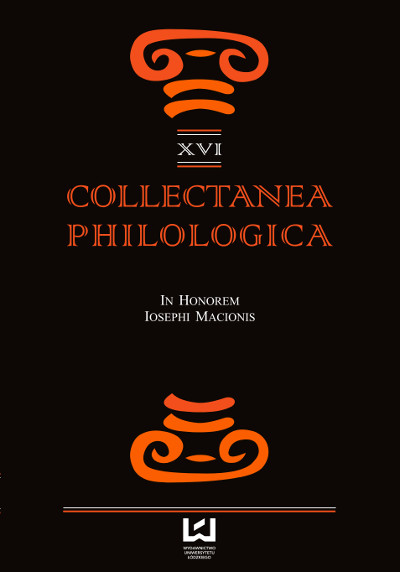QUID ISOCRATES DE BENE SUA GERENTIS VIRTUTE EXCULTA IUDICAVERIT
DOI:
https://doi.org/10.18778/1733-0319.16.09Słowa kluczowe:
Greek education, phronesis, Isocrates, PlatoAbstrakt
In his Panathenaic speech, Isocrates contrasts his own teaching program with traditional models of Greek education, both the earlier one and the more scientific one that is favoured in his times: his aim is to form the minds of students in such a manner that they can seize any opportunity that comes along, that in the social intercourse they always remain indulgent and patient, and – what seems the most important here – that they become able to endure both luck and misfortune with courage and appreciate not the things obtained merely by chance, but the ones gained by their toil and effort (Panath. 30–32). And Isocrates’ respect to steadily working mind becomes even greater with time: the result of such a labour must be some prudence (“phronesis”) – the aim of every justly conceived education. Isocrates’ “phronesis” is not Platonic excellence of mind, permanent and always the same, it is the skill and talent of discovering how to adjust to changing public affairs, but at the same time it shall remain constant and unchangeable in its imperative good – the benefit of Athens and its citizens.
Pobrania
Opublikowane
Jak cytować
Numer
Dział
Licencja

Praca jest udostępniana na licencji Creative Commons Attribution-NonCommercial-NoDerivatives 3.0 Unported License.












